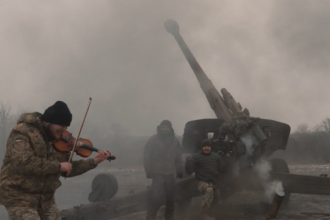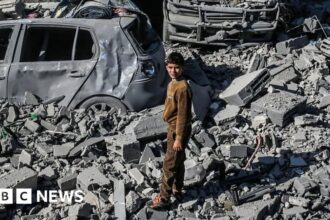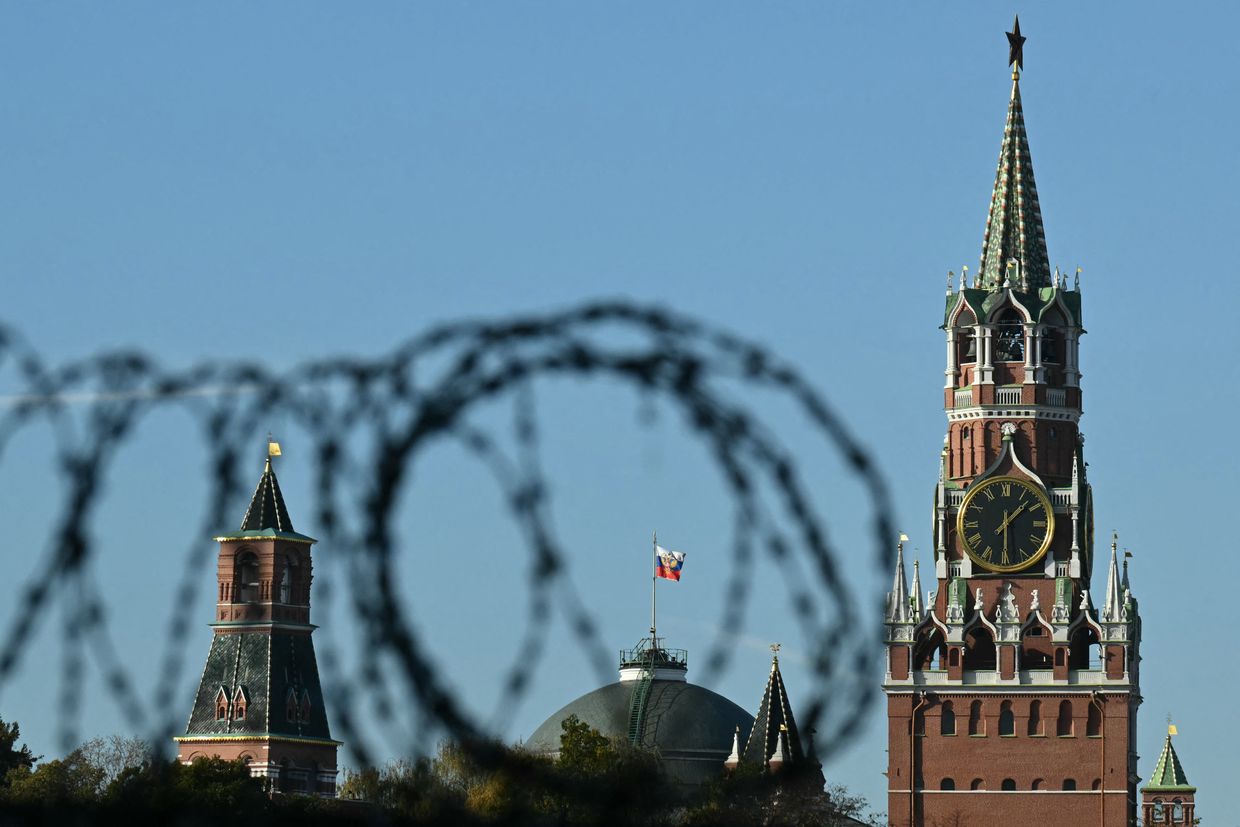After days of discussion, the world’s foremost anti-money laundering watchdog (FATF), decided last week not blacklist Russia, despite Kyiv’s efforts to influence members to do so due to the Kremlin’s increasing ties with North Korea and Iran, which are blacklisted.
The FATF, which monitors illicit activities like money laundering and terrorist funding, suspended Russia’s participation in February 2023 because of Moscow’s conduct towards blacklisted states and cybercrimes.
The international organization met from October 22 to 25, in Paris, to discuss which countries to remove from its gray- and blacklists. The FATF confirmed Moscow’s suspension but did not go further by labeling Russia a “high risk country.” This is another victory for Russia over a Western-led sanction regime that has sought to isolate it around the world.
The FATF has condemned Russia’s full scale invasion of Ukraine. However, the organization needs a unanimous vote from all 40 members before it can add Russia to its “no-go” list. Some countries, such as South Africa and Brazil have approached Russia with more courtesy than their Western counterparts.
The FATF condemned Russia’s full scale invasion of Ukraine. However, the organization needs a unanimous vote from all 40 members before it can add Russia to its “no-go” list.
Ukraine, which does not belong to the FATF, has tried, but without success, to convince them to label Russia as a country with high risks. In the run-up to the Paris Plenary, Kyiv submitted a dossier to FATF which showed that Moscow was developing increasingly close ties with North Korea and Iran – both blacklisted countries.
In a press statement issued before the meetings, the Finance Ministry stated that “Russia is endangering the security and integrity” of the global economic system by allowing sanctioned countries like North Korea and Iran to enter the international financial system through a backdoor and destabilize it.
Politico reported that Ukraine’s dossier included information about the funding of the Kremlin’s mercenary group, the Wagner Group, as well as the role of cryptocurrency in financing Russian terrorism and money laundering through stolen Ukrainian goods such minerals and grain.
Tom Keatinge, Director of the Center for Finance and Security at Royal United Services Institute, a London-based group, told The Kyiv Independent that blacklisting Russia would send a strong symbol about the international community’s support for Ukraine.
“In practice, it would also force financial systems (both banks and regulators) in countries that remain bafflingly apathetic to the Kremlin’s murderous activities to pay attention to transactions they are dealing with,” he added.
Keatinge stated that Russia is violating UN sanctions and FATF standards by working openly with North Korea. The Finance Ministry reported that Pyongyang had supplied Moscow with missiles, and more recently, troops, to support its war against Ukraine in exchange for crude oil.
The Finance Ministry also highlighted Russia’s purchase of ballistic missiles by Iran and their close banking and financial collaboration. The ministry stressed the need to act quickly and looked to FATF as the leader.
Serhii Marenko, Ukraine’s Finance minister, said on October 17 that failing to confront Russia’s defiance could weaken the future stability of the world financial system.
“Failing the challenge Russia’s defiance will weaken the foundations of the global financial systems and its future stability.”
Keatinge said that it’s not clear why the FATF did not punish Russia more harshly. However, he noted the “fractured nature” of the organization when it comes down to geopolitics. He says that if the FATF refuses to take action, it is up to the U.S. and EU to impose more sanctions.
“It’s now time to remove the gloves,” he said.
The Finance Ministry warned that the more desperate Russia becomes in its war, with its limited battlefield victories and economic squeeze, the greater threat it poses to the global economies.
The FATF warned its members to be vigilant in identifying emerging risks, and the Finance Ministry announced that it would work with governments to combat Russia’s financial crimes. The ministry claims that Russia continues to work alongside cybercriminal gangs like the Russia-based Evil Corp to target global economies including those of several FATF members states.
The U.S. sanctioned Evil Corp members recently, claiming the group developed and spread the Dridex malware. The malware affected over 40 countries and hundreds banks, causing $100,000,000 in theft losses and damages.
Timothy Ash, senior emerging market (EM), sovereign strategist at BlueBay Asset Management emphasized that tightening the sanctions would weaken Russia’s economy, restricting Russia’s ability to wage war against Ukraine and giving Ukraine and the West more leverage in future negotiations.
The Kyiv Independent reported that the decision of the FATF to not blacklist Russia revealed the lack leadership in the West to curb Russia.
He said, “This should have been an easy win.”
Dominic is the Kyiv Independent’s business reporter. He has written for several publications, including the Financial Times and Radio Free Europe/Liberty. Dominic was previously a disinformation specialist with StopFake, debunking Russian false news in Europe. Read more
Read More @ kyivindependent.com




